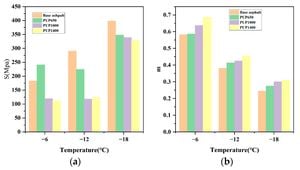Miyaguchi Haruko, a member of the House of Councillors from Hiroshima and part of the Constitutional Democratic Party of Japan, officially submitted her resignation on the afternoon of the 20th. This unexpected move has caught the attention of political observers and party members alike.
Ms. Miyaguchi rose to prominence four years ago when she won her seat through a by-election following the invalidation of the election of Kawakami Anri. Her path within the party seemed promising at first, as she joined the ranks of the Constitutional Democratic Party after her initial success. Nevertheless, she has faced considerable challenges lately, leading to her decision to resign.
"There’s no place for me even if I stay," Miyaguchi remarked, reflecting her feelings about her position within the party. Her comments underscored her sense of disconnect from the party's direction and the lack of support she felt from peers as the upcoming elections loom.
This resignation is not just about one individual's defection; it signals potential challenges for the Constitutional Democratic Party as they seek to maintain cohesion and support amid changing political dynamics. Miyaguchi's departure may influence the party's strategies and candidate selections going forward.
Remaining true to her independent spirit, Miyaguchi announced her intention to serve out the remainder of her term as an unaffiliated member. By doing so, she aims to continue her political work without the constraints she feels she faced within the ranks of the Constitutional Democratic Party.
Her exit adds to the growing narrative of instability among political parties, particularly those trying to unify under shared goals. The challenges she faced within the party may resonate with constituents who feel disenfranchised by current political dynamics. Miyaguchi's choice to step away might encourage other members to reevaluate their positions and alliances.
The constitutional and electoral framework of Japan allows for such resignations, but the political fabric could shift as more individuals seek to distance themselves from established party lines, especially if they feel unsupported. This reflects larger concerns about representation and the effectiveness of party systems to accommodate diverse viewpoints.
Going forward, it remains to be seen how Miyaguchi Haruko's resignation will impact her political future and the future of the Constitutional Democratic Party. Her decision could motivate changes and perhaps instigate dialogue about the strategies parties employ to engage and support their members, particularly those representing urban electorates like Hiroshima.
While parties often train their focus on strategy and campaigning for elections, they must also heed the voices of their members. The situation hints at the delicate balance between personal ambition and collective political ideology, raising questions about how party structures can sometimes stifle dissent or individual agency. Miyaguchi’s departure may symbolize more than just one woman's choice; it potentially signals broader issues within Japan's political culture.



